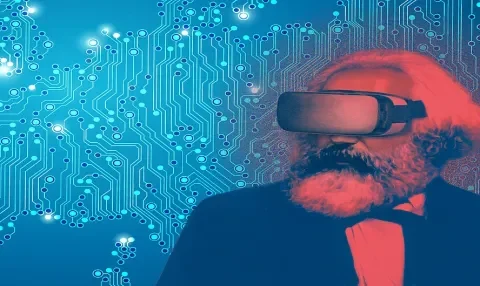Everywhere we look, AI is treated like an inevitability.
AI companies like ChatGPT and Open AI are expanding rapidly, and many Americans rely on AI assistants such as Alexa and Siri in their day-to-day lives. For some college students, not relying on AI can feel like a disadvantage.
Critics might be soothed by the idea that AI can be put to good use — such as in data modeling to better predict our changing climate, an idea that’s generated a lot of enthusiasm. But using AI to tackle climate change is like bombing a country in the name of peace.
AI is a driver of climate change, not a solution. According to the United Nations Environment Program, rapidly proliferating AI data centers “use massive amounts of electricity, spurring the emission of planet-warming greenhouse gases,” as well as consuming enormous quantities of water and minerals.
ChatGPT, the popular AI software, is hardly worth the climate impact. One analyst, Sophie McLean, writing for Earth.org, explains, “For a simple conversation of 20-50 questions [to Chat GPT], the water consumed is equivalent to a 500ml bottle.” Spread across “billions of users,” that’s a “substantial” footprint.
AI is spreading so fast, we’ve hardly had an opportunity to consider its impact. Even the world’s most popular search engine, Google, started using AI by default. Each time you do a simple search, Google uses generative AI to offer an “AI overview” before listing its results.
Moreover, AI services like ChatGPT gobble up and regurgitate the work of humans. If plagiarism weren’t bad enough, they’re notorious for generating misinformation in fields such as medicine and computer programming.
Even for simple queries like searching for citations, AI programs often make up references that don’t exist. Experts are worried the technology’s propensity to “hallucinate” is so severe, it will never achieve high levels of accuracy.
Setting aside the prospect of massive job losses from AI and the troubling realization that AI models lie and proliferate misinformation, do we really want to push our climate to the brink because of a technology that offers convenience? AI is a technology foisted upon a society that doesn’t need it, and that faces very real harm because of it.
What’s needed at minimum is strict regulation, not only to protect information and jobs, but also people and the planet.
But as soon as he took office, President Donald Trump began dismantling the few, very modest government checks on AI. And the GOP’s so-called “Big Beautiful Bill” included, alongside massive tax breaks for the wealthiest Americans, a ban on states being able to regulate AI. (That provision was scrapped, but it may well return in another form.)
We need to demand better. Technology analysts Paul Scharre and Vivek Chilukuri argue for “a principles-based approach to regulation, instead of fixed technical standards that could be outdated before the ink dries.” They also suggest an independent regulatory agency dedicated to this powerful technology.
In the meantime, we as individuals should avoid using programs like ChatGPT. Not only does it diminish our own capabilities — researchers at MIT recently found that an over-reliance on programs such as ChatGPT significantly lowers brain activity — but because it actively fuels climate change.
Think of AI avoidance as mental exercise in the same way you might choose to walk instead of drive for physical well being.
Consider turning off Google’s AI Overviews. The tech company doesn’t make it easy for most people to figure out how to do it — and of course, it offers an AI overview that may or may not be accurate when you search for how to turn it off. After some digging, I found a human-generated answer that actually works.
If we want a safer world, protected from the dumbing down and waste associated with AI, we have to begin programming ourselves and our world to make choices that center human wellbeing.
*Sonali Kolhatkar is the founder, host and executive producer of “Rising Up With Sonali,” a television and radio show that airs on Free Speech TV (Dish Network, DirecTV, Roku) and Pacifica stations KPFK, KPFA, and affiliates.






